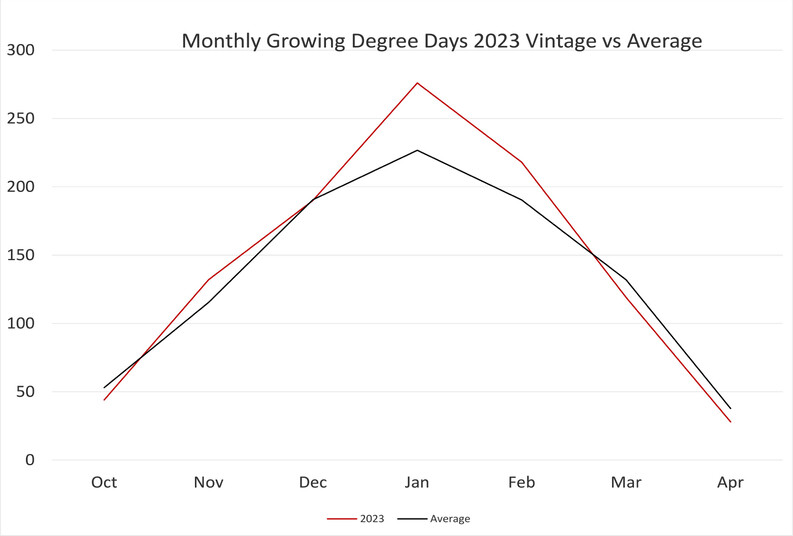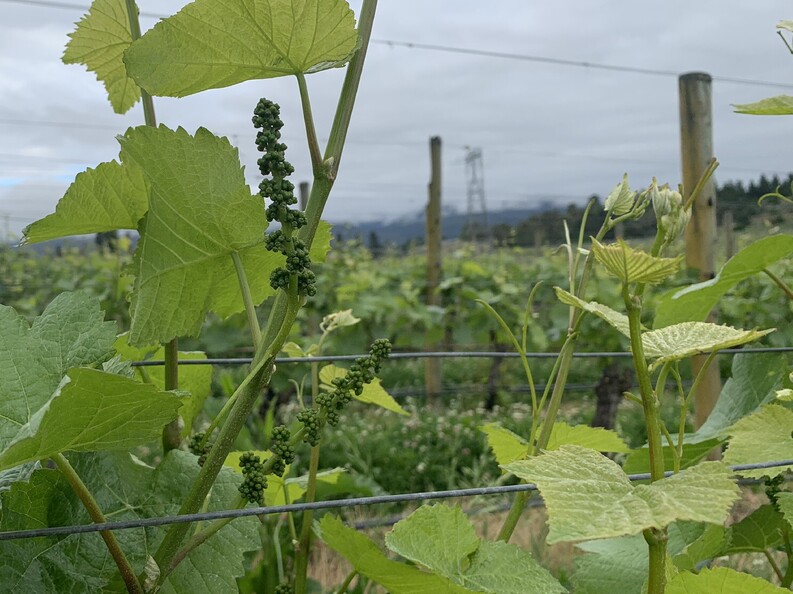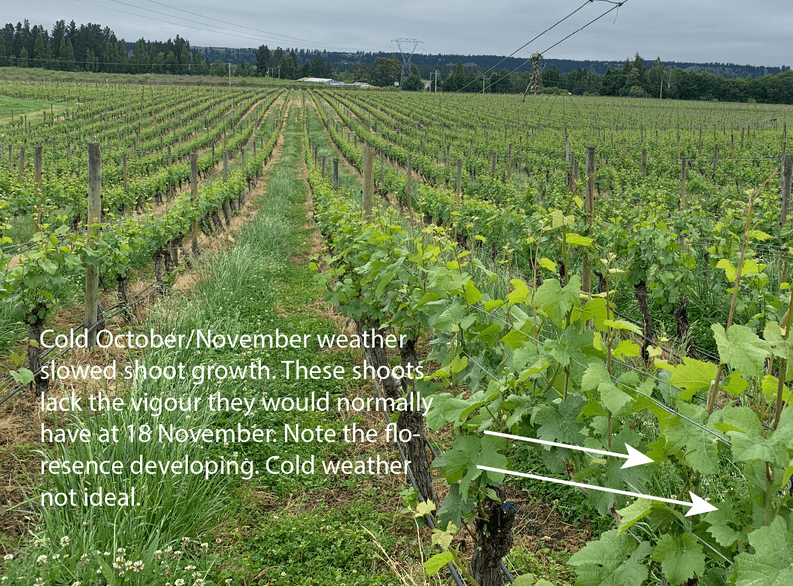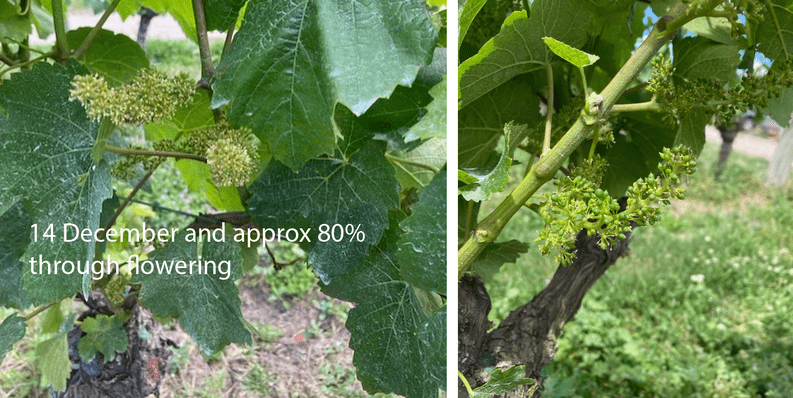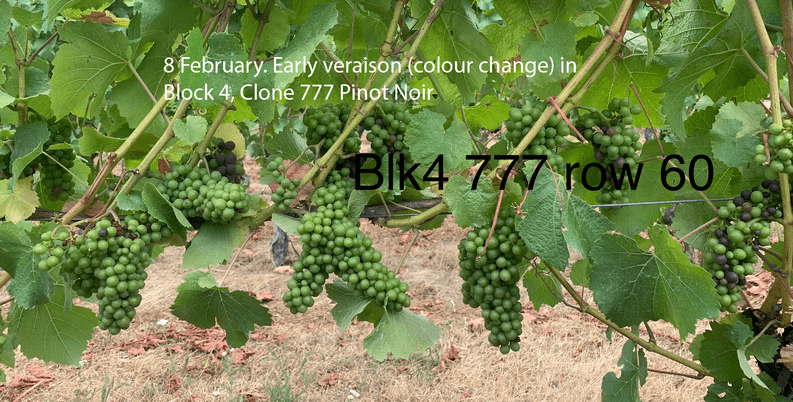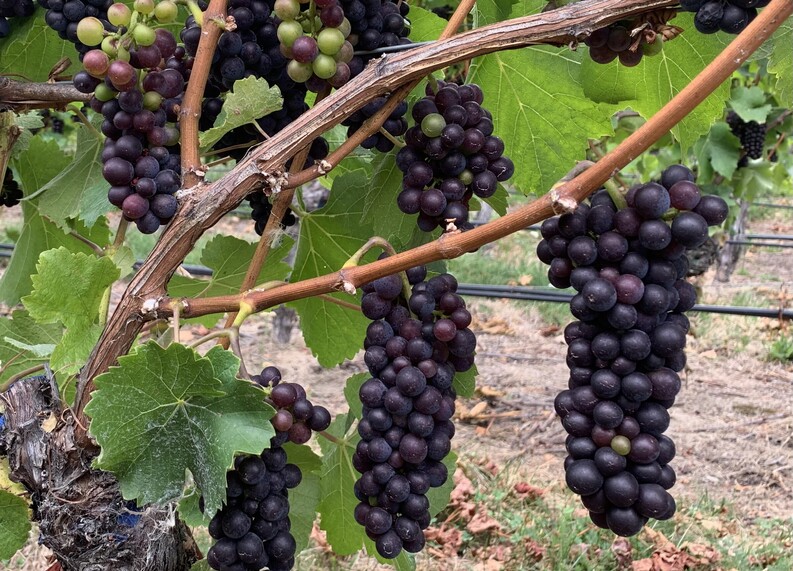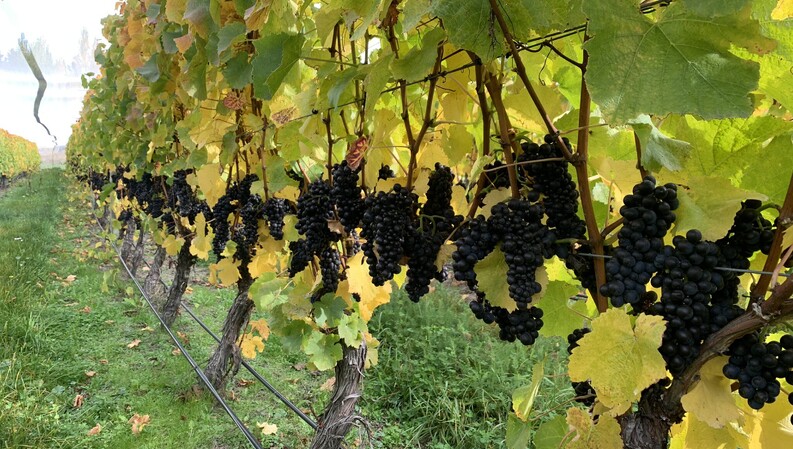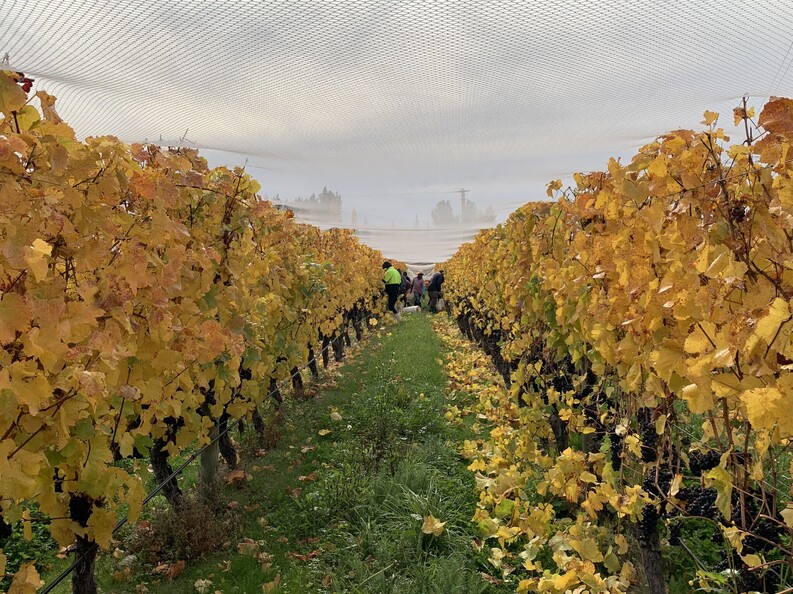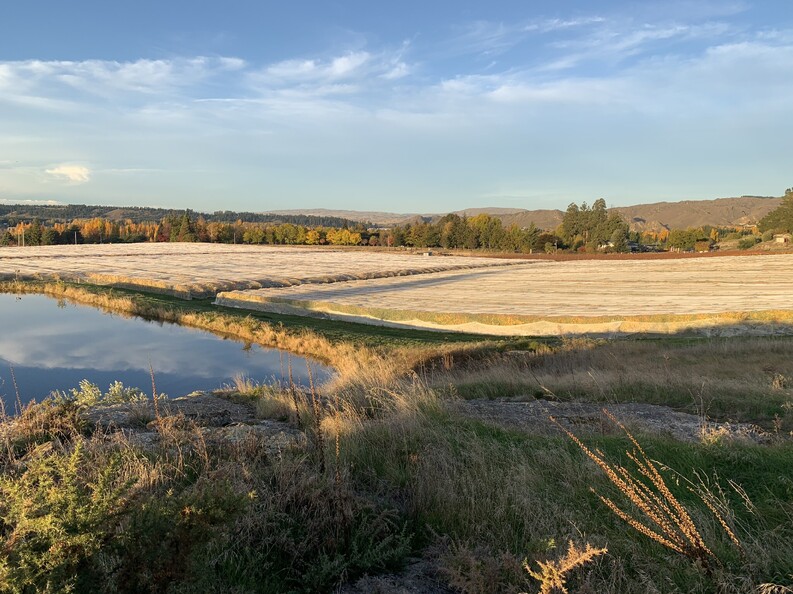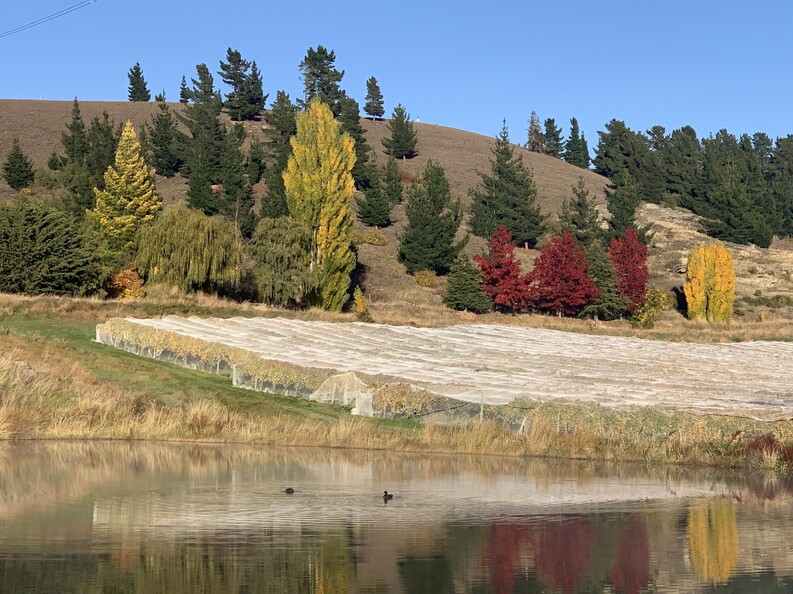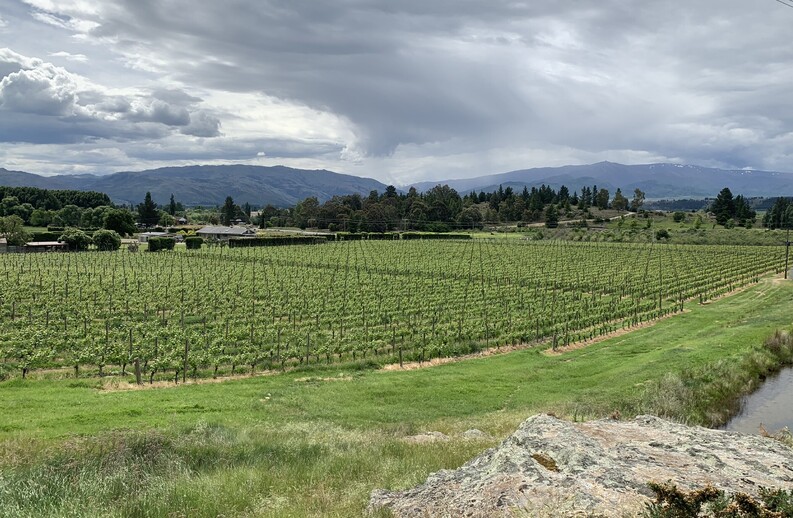
2023 vintage season started and finished cooler than average but summer was warmer than average. Overall it was a warm year.
When the last grapes are picked for the season, we take time to reflect on what the vines have delivered and try and understand what the defining moments for the vintage were. This 2023 vintage is our 18th and one of our more challenging in recent years. We have come through well in the circumstances and feel fortunate we missed the direct impact of Cyclone Gabrielle which hit many in the North Island. Gabrielle was a massive weather system and the most damaging cyclone to hit northern New Zealand since Cyclone Bola in 1988.
2023 vintage season was not normal. In the later part of 2022 sea temperatures were significantly higher than normal which tends to push warm air into Central Otago and this shows in the growing degree chart below as a warmer than average year. However, in Spring 2022 a strong La Nina weather pattern meant we received more easterly weather. For us that can mean dry conditions in the east and it tends to mean the sub-regions within Central Otago don’t behave normally relative to one another. Bendigo, Pisa, Bannockburn usually lead Alexandra and Gibbston into harvest but 2023 was all out of synch and for multiple reasons.
It seems the easterly weather pattern alternated with cold southerly fronts during spring. All Central Otago sub-regions were hit by frosts in early October when many vines were in early budburst. The effect was localised depending on stage of bud growth, severity, and frost protection systems. The Alexandra NIWA weather station recorded 27 days when grass minimum temperature (5 cm above ground) fell below zero during September & October. The first week of October was exceptionally cold with all but one day below zero and as low as -5.8 degrees at the Alexandra weather station. We turned on our frost fighting system in October to avoid damage to young buds, but the low average temperatures are not good for bud and flower development.
By November we had escaped the coolness of October and were feeling the effect of higher than normal see temperature in the Tasman. Growing Degree Days were 10% above normal for November.
With higher-than-normal sea temperatures come the increase in westerly rain events. Spring was wetter than normal and November 40% wetter than normal. Wet conditions increase the risk of Powdery Mildew on the vines. Days with rain in November and December totalled 21. In good years we receive well less than this and hope for a dry period of weather during flowering around mid-December.
By 31 December we had a season which had seen a frosty start, more rainy days, greater disease pressure and running at least a week behind normal.
The rain stopped on 4th January and went dry and did not rain for seven weeks until 21st February. The season caught up quickly, but the intense heat progressed grape development rapidly and by the first week of February we were seeing small berries in some bunches ripening so early that they turned black and would likely shrivel before harvest. Harvest date seemed on track to start at the end of March, which is earlier than average for Grasshopper Rock.
During March and especially late March the weather patterns changed again, and the wheels fell of what had seemed like a smooth end to the season. 29, 30 and 31 March saw three consecutive frosts requiring significant frost fighting effort. Then two more significant frost fighting events on 7 and 8 April. Followed by 20 mm of rain around 10 April.
This led to a slowdown in ripening with sugar level rising slowing to what seemed like a crawl as we edged towards the end of April.
Finally with totally ripe fruit full of flavour we started our hand harvest on 17 April with the last fruit off before 25 April and another series of frosts.
Overall, we are thrilled with the result. Crop yield is slightly down on average, but the fruit is outstanding and will produce another excellent Grasshopper Rock Pinot Noir with the 2023 handprint on it.
There is a saying in farming that the seasons have a habit of averaging out and 2023 will certainly be remembered as one this applies to. A tough early spring, a kind summer to catch us up and then a difficult autumn to bring as back to earth. We are sure the wine will be good.
